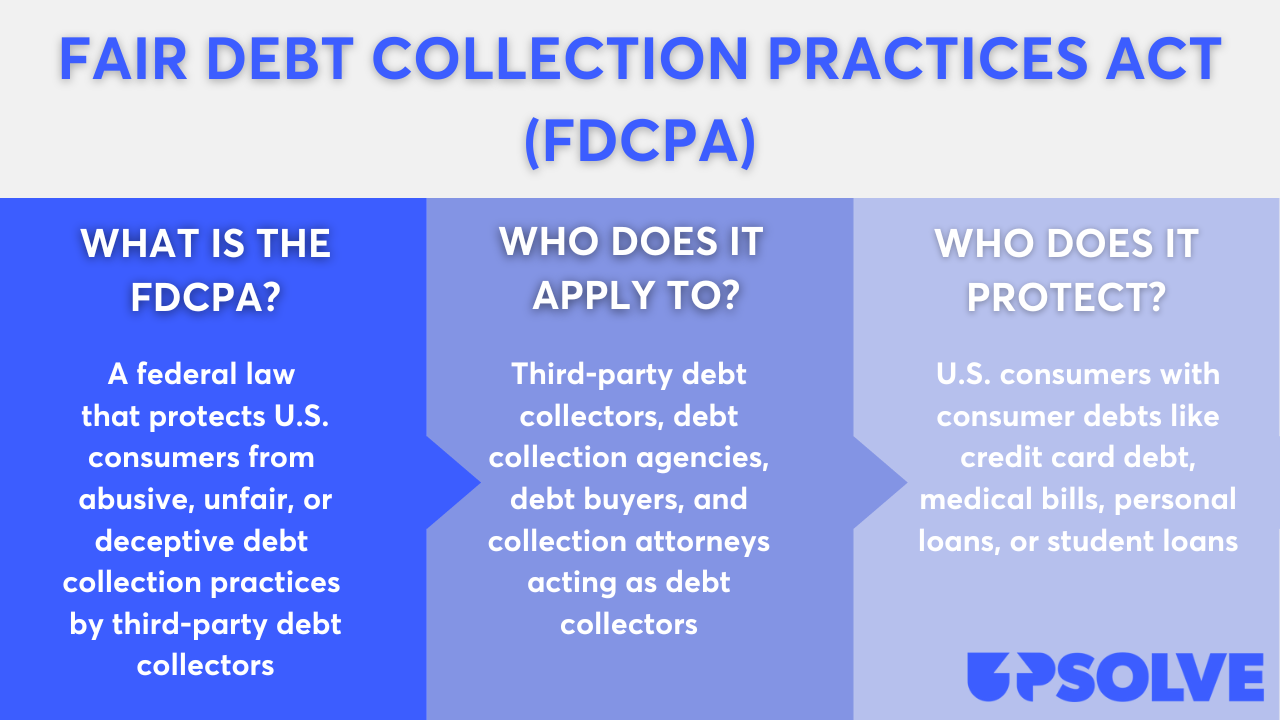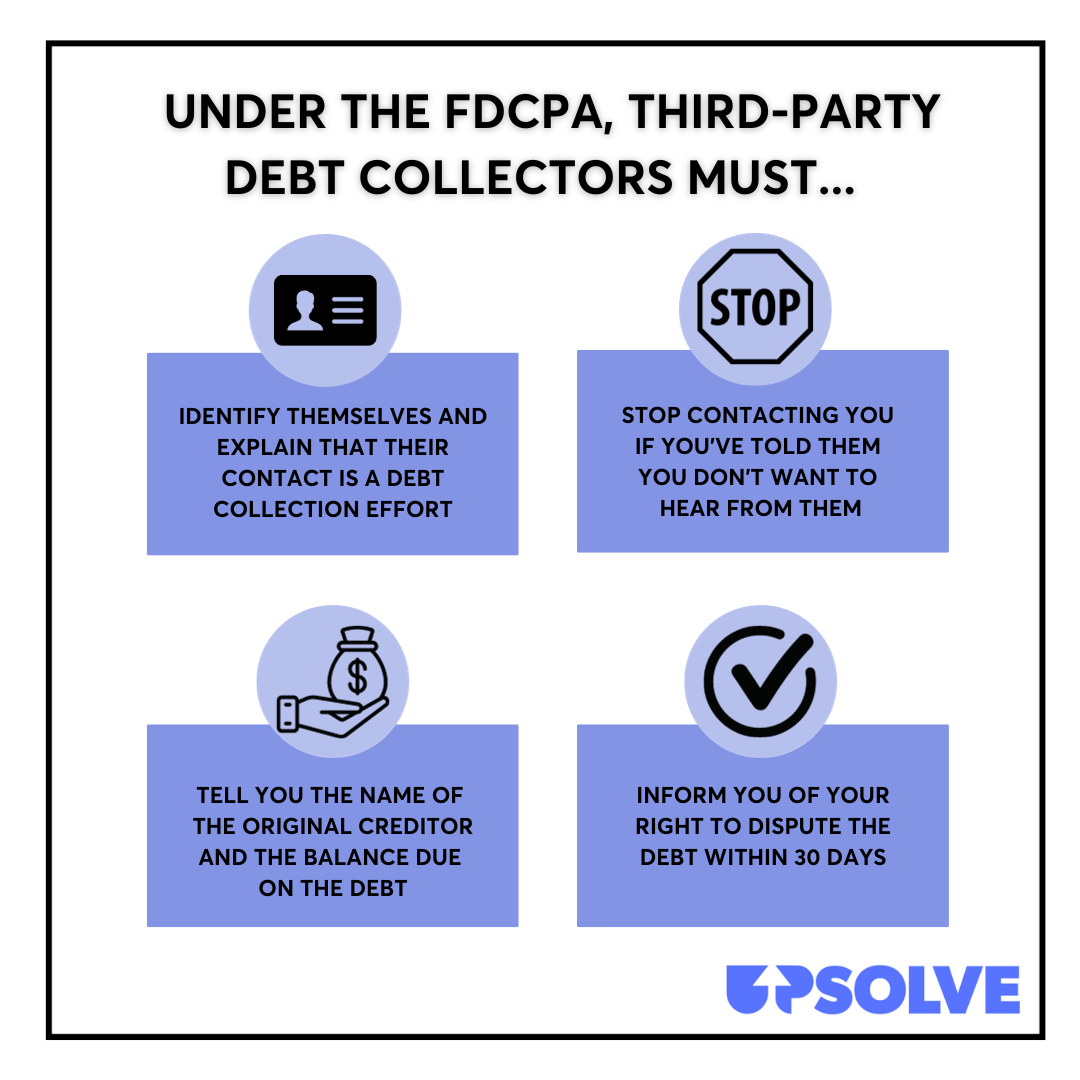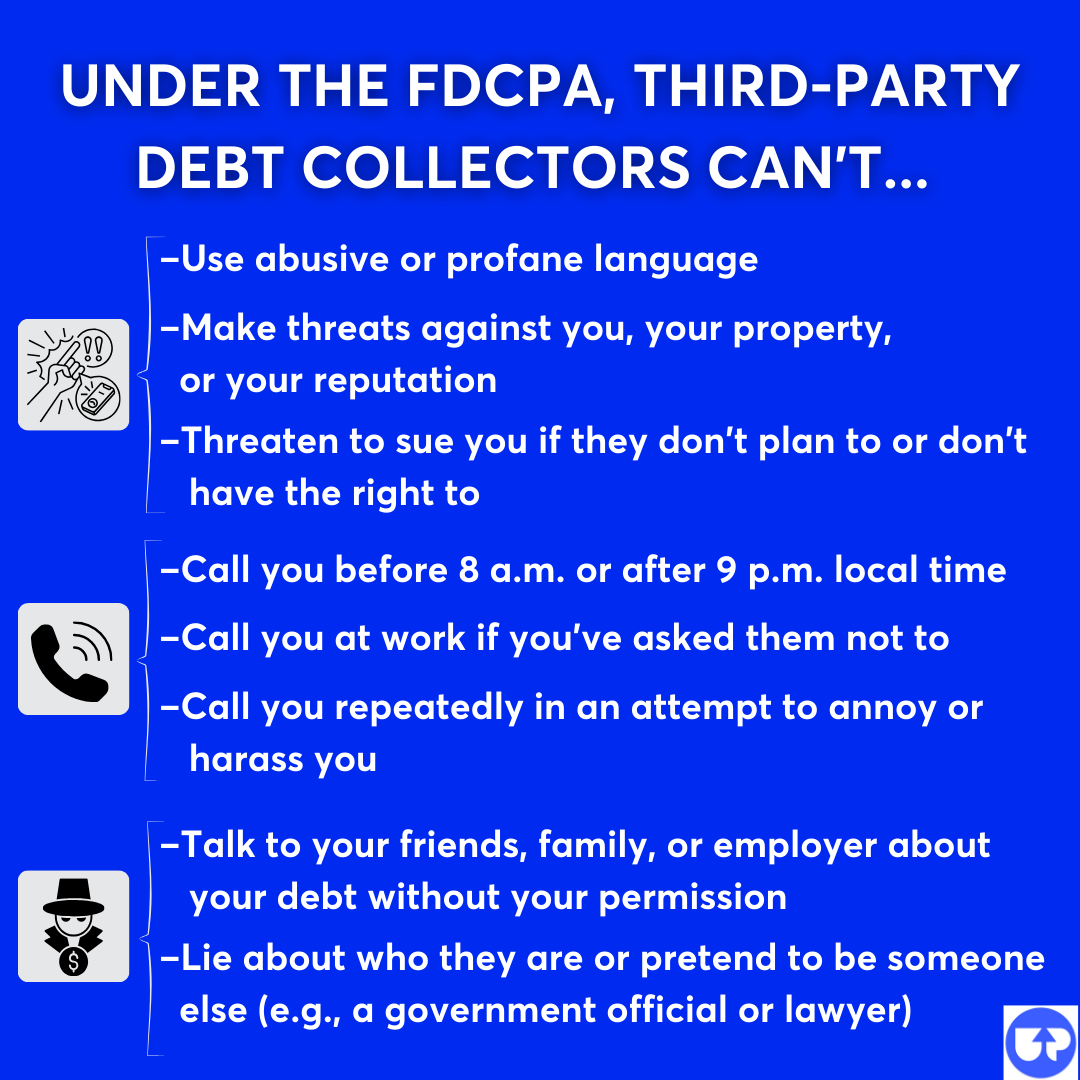
Upsolve is a nonprofit that helps you get out of debt with free debt relief tools and education. Featured in Forbes 4x and funded by institutions like Harvard University so we'll never ask you for a credit card. Get debt help.
In a NutshellWashington has two state debt collection laws: the Washington Collection Agency Act (CAA) and the Washington Consumer Protection Act (CPA). Combined, these two laws provide important protections for state residents against original creditors, third-party debt collectors, and debt buyers. Washington residents get further protection from the federal Fair Debt Collection Practices Act (FDCPA). The statute of limitations for credit card debt and medical bills in Washington state is six years.
Written by Jonathan Petts.
Updated January 3, 2024
Washington has two state laws regarding debt collection: the Washington Collection Agency Act (CAA) and the Washington Consumer Protection Act (CPA).
The Washington Collection Agency Act establishes which collection practices are prohibited and defines what makes an act or practice unprofessional by a collection agency.
This act applies to third-party debt collectors (including original creditors if they handle their collections under a different, fictitious name) and debt buyers. However, it doesn’t apply to original creditors who handle collections under the same name or billing/servicing companies that only send account notices on behalf of a creditor or collector.
The CAA outlines the state’s licensing requirement for collection agencies and establishes a list of additional rules and requirements that debt buyers must follow if they attempt to sue debtors.
The act’s language follows the protections in the Fair Debt Collection Practices Act (FDCPA) and the related federal debt collection rule, though there are some differences. (More on the FDCPA below.)
The Washington Consumer Protection Act states that any unfair or deceptive acts practiced by collection agencies are unlawful. This law provides Washington state consumers with the right to sue debt collectors in civil court.
Both Washington state laws work alongside the Fair Debt Collection Practices Act (FDCPA). This federal law protects consumers from harassment and abusive debt collection practices. Every citizen in Washington is protected under the FDCPA.
Here’s an overview of this federal law:

The main purpose of the FDCPA is to provide protections for consumers against third-party debt collectors. It also outlines what debt collectors are allowed to do:

In addition to outlining what debt collectors can do, the FDCPA outlines what third-party debt collectors can’t do:

Not every state provides protections beyond the FDCPA for its residents. Washington, however, does provide additional protections beyond the FDCPA.
For one, Washington limits the amount of contact a debt collector can make. The state defines harassment as:
If you contact the collector first and they respond to your initial contact, their response doesn’t count toward these limits.
The state also provides additional protections for medical debt. The Washington Collection Agency Act contains additional requirements for debt collectors who are attempting to collect medical debt. For a medical debt, the validation notice info must state that:
Debt collectors may not report information about medical debt to a credit bureau for at least 180 days from the date the collection agency received the information about the debt.
WashingtonLawHelp.org and the Northwest Justice Project have created a comprehensive guide for dealing with medical debt in Washington State.
Debt lawsuits have become increasingly common in recent years. In Washington, if a debt buyer files a lawsuit against you, they must attach a copy of the contract for the debt that shows your signature.
If the debt wasn’t backed by a signed contract, the debt buyer must instead attach a copy of the most recent transaction statement in which you took an action (made a payment or a purchase) and a copy of the account terms and conditions.
They must also include a disclosure in the complaint, in font no smaller than 10-point type, stating each of the following:
If you don’t respond to the lawsuit or show up to your court date, the debt buyer can’t get a default judgment against you unless they meet the requirements above and also provide evidence that establishes:
If you think a debt collector has violated either of Washington’s debt collection laws, you can submit a complaint to the Washington State Department of Licensing. You can also file a complaint with the Washington Attorney General’s Office.
You can also file a civil lawsuit against the debt collector.
If a debt collector breaks state laws, you can sue them in a state civil court. If you win the case, you may be eligible for compensation including actual damages, punitive damages, court costs, and attorney fees.
The court may also choose to award up to three times the amount of your actual damages (so long as that doesn’t exceed $25,000). Actual damages are real losses or harm you suffered due to the violation. There is no state cap on punitive damages.
That said, you don’t need to have suffered actual damages to sue a debt collector under the CPA. If the collector’s actions or practices are harmful to the public because they violate state laws, you can sue them. In this case, you won’t be awarded damages, but you can get a court order for the collector to stop the violation and you can recover your attorneys fees and costs.